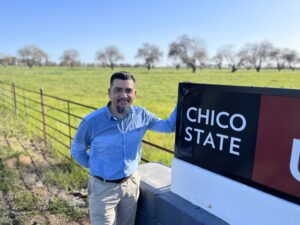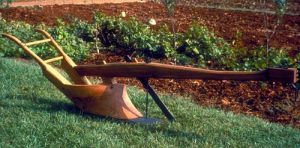
by Ken Smith
posted April 5
Ricardo Orellana grew up against the backdrop of a 12-year civil war in his native El Salvador, but his childhood memories are thankfully dominated by more peaceful recollections — namely, of working with the cows at his grandmother’s farm outside the small town of Usulutá.
“It wasn’t a large farm, just five or six acres with about 25 milking cows and a few other animals,” Orellana said during a recent interview. “She also grew cassavas, tomatoes, beans and corn. It was very rural, and how I fell in love with agriculture.”

